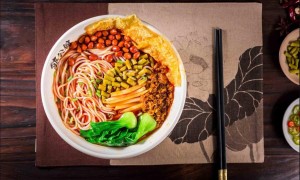自古就有这样的说法:
“二月二,龙抬头,
大仓满,小仓流”
可见,这一天
对中国人来说是非常重要的
那么问题来了
“龙抬头”英语怎么说?
“龙抬头”英语怎么说?
“龙抬头”其实是个节日
所以
“龙抬头”可以说
Longtaitou Festival

维基百科:
Longtaitou Festival
The Longtaitou Festival, is a traditional Chinese festival held on the second day of the second month of the Chinese calendar. Its name means "Dragon raising its head" because the dragon was regarded as the deity in charge of rain, an important factor in ancient agriculture. The festival is sometimes simply called "2 Month 2" for short.
龙抬头,是中国的传统节日,在中国农历的第二个月的第二天。它的名字意为龙抬起它的头,因为龙被视为掌管雨的神而在古代农业生活中有重要的作用。这个节日有时简单地称为二月二。
那如果这么说,老外听不懂
可以这样解释
↓
Dragon Head-Raising Day
龙抬头
为什么二月二要理发
The story goes that after this day, the Dragon King would wake from his winter sleep and bring rainfall for the crops. The Chinese saying ‘Er yue er, long tai tou,’ which translates to ‘On the second day of the second month, the dragon lifts its head,’ celebrates the ancient agrarian culture in China. Although some of the traditions to celebrate the day are no longer practiced, some do remain.
传说从这一天起,龙王会从冬眠中醒来,为庄稼带来降雨。谚语“二月二,龙抬头”,翻译过来就是在第二个月的第二天,龙起了它的头,以庆祝中国古代的农耕文化。尽管庆祝节日的某些传统已经不复存在,但仍有一些保留了下来。
The most notable tradition on the day is getting a haircut, which is said to get rid of bad luck. In contrast, getting a trim during the first lunar month is said to bring bad luck – with one saying even warning that your uncle will die if you get a haircut during the first month.
其中最著名的习俗就是理发,据说理发可以驱除霉运。相反,据说正月理发会带来霉运,有人甚至警告说,如果你在正月理发,你的舅舅就会死。
However, some argue the Chinese phrase has been misinterpreted, and actually calls for people to ‘remember the past’ (思旧, sijiu). Men of Han ethnicity were required to shave the front of their head and braid their back portion of hair during the Manchu rule of the Qing dynasty. The similar pronunciation of ‘remember the past’ (sijiu) and ‘death of the uncle on your mother’s side’ (sijiu) probably led to the later saying.
然而,一些人认为这其实是对于这一个俗语的误解。这个俗语其实事实上是在呼吁人们记住过去(思旧)。在清朝满族统治时期,汉族男子被要求剃光一半头发,并将剩下的头发编成辫子。“思旧”和“死舅”发音相近,可能导致了后来的误传。
It was a tradition for folks to lineup outside barbershops on Longtaitou Festival, waiting for their first haircut of the New Year.
人们在龙抬头那天在理发店外排队剪头发,等待新年的第一个发型的景象已经成为了传统。







